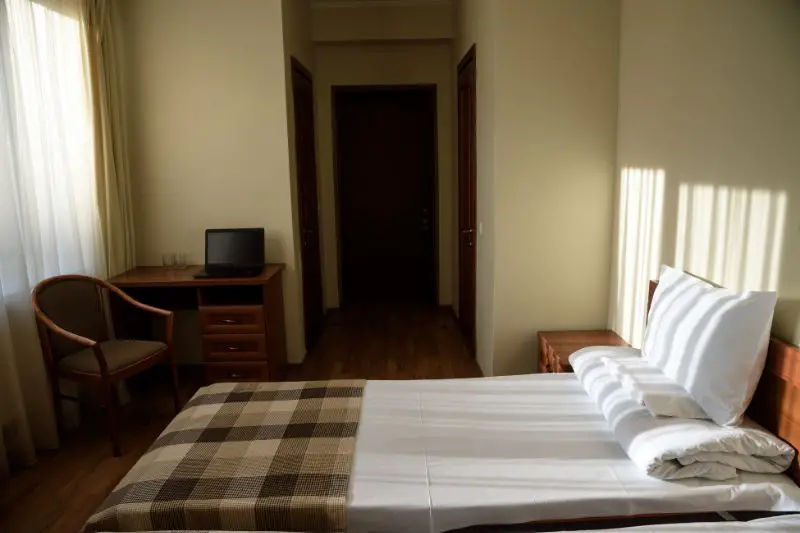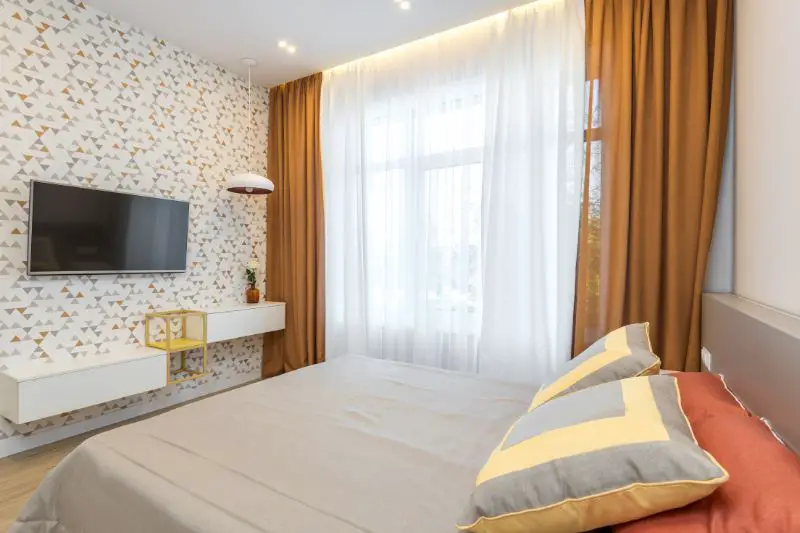
What if you could unlock the secret to attracting more guests to your budget hotel—without spending a fortune on marketing? In an industry where affordability is key, understanding exactly who your ideal customers are can make all the difference.
Budget hotels cater to a wide range of travelers, from backpackers seeking adventure on a shoestring budget to business professionals looking for cost-effective stays. But what truly drives their booking decisions? What amenities and experiences do they value the most?
In this guide, we’ll dive deep into the budget hotel target market, exploring who they are, what they’re looking for, and how you can position your hotel to meet their needs. Whether you’re a hotel owner, manager, or marketer, this insight will help you attract more bookings and build long-term customer loyalty. Let’s get started!
Who is the Budget Hotel Target Market?

Understanding your target market is the foundation of a successful budget hotel business. While affordability is a key factor, different travelers have distinct needs, preferences, and booking behaviors. Identifying these groups helps you tailor your marketing, services, and pricing strategies to attract the right guests.
Price-Conscious Travelers
These travelers prioritize affordability over luxury. They are often budget-conscious tourists, backpackers, and solo adventurers who seek the best value for their money. Price-sensitive guests typically compare rates across multiple platforms and look for promotions, discounts, and package deals.
How to attract them:
- Offer competitive pricing with flexible booking options.
- Highlight cost-saving features such as free breakfast, complimentary Wi-Fi, and loyalty discounts.
- Ensure your property is listed on budget-friendly travel platforms like Hostelworld and Agoda.
Business Travelers on a Budget
Not all business travelers stay in high-end hotels. Many small business owners, freelancers, and corporate employees seek affordable yet comfortable accommodations. They prioritize convenience, connectivity, and work-friendly amenities.
What they value most:
- Reliable high-speed internet and dedicated workspaces.
- Proximity to business districts, conference centers, and transportation hubs.
- Hassle-free check-in and check-out processes for efficient travel.
Families and Group Travelers
Families and groups often look for budget-friendly accommodations that can comfortably host multiple guests. They are less concerned with luxury and more focused on space, safety, and essential services.
Ways to cater to them:
- Offer family-sized rooms or interconnected suites.
- Provide kid-friendly amenities such as cribs, high chairs, and play areas.
- Highlight nearby attractions and family-oriented activities.
Digital Nomads and Remote Workers
With the rise of remote work, digital nomads are increasingly seeking budget hotels that support a work-and-travel lifestyle. They require affordable long-term stays with reliable internet, quiet environments, and comfortable workspaces.
Key features they look for:
- Strong Wi-Fi and coworking areas.
- Discounts for extended stays.
- Locations near cafés, coworking spaces, or cultural hotspots.
Local Travelers and Staycationers
Not all budget hotel guests are from out of town. Many locals book budget hotels for short getaways, weekend retreats, or even temporary housing. Staycationers look for affordability, convenience, and unique experiences.
Effective strategies to attract them:
- Run local promotions and weekend getaway packages.
- Partner with local businesses for exclusive deals on dining and entertainment.
- Emphasize comfort, cleanliness, and convenience in your marketing efforts.
What Drives the Budget Hotel Market?

The budget hotel industry thrives on meeting the needs of cost-conscious travelers without sacrificing essential comforts. While affordability is a key factor, several other elements influence a guest’s decision to book a stay. Understanding these driving forces allows budget hotels to refine their offerings and stay competitive.
Affordability and Value for Money
Price remains the most significant factor for budget hotel guests. Travelers in this segment are looking for cost-effective options that provide essential services without unnecessary extras.
Key considerations:
- Competitive pricing compared to mid-range and luxury hotels.
- Transparent pricing with no hidden fees.
- Special deals for direct bookings, long stays, or off-season visits.
For example, a study by Statista found that 73% of budget travelers prioritize price over brand loyalty, indicating that affordability plays a decisive role in their booking choices.
Convenience and Accessibility
Guests choose budget hotels not just for price but also for their strategic locations. Whether they are tourists, business travelers, or locals on a short stay, proximity to key locations influences their decision.
Essential factors include:
- Easy access to public transportation and major highways.
- Locations near business districts, tourist attractions, and event venues.
- 24/7 check-in and checkout options to accommodate different travel schedules.
Budget hotels that position themselves near airports, train stations, or city centers tend to attract higher occupancy rates. According to a report by Skift, over 60% of travelers prioritize accessibility when choosing accommodations.
Essential Amenities Over Luxury
Budget travelers do not expect high-end services, but they do demand well-maintained essentials. A clean, comfortable stay with reliable basic amenities is a non-negotiable expectation.
Must-have amenities include:
- Free and stable Wi-Fi, as connectivity is crucial for work and leisure.
- Complimentary breakfast or on-site dining options for convenience.
- Comfortable bedding and clean rooms to ensure a restful stay.
- Secure storage options, especially for solo travelers and business guests.
Hotels that focus on delivering these essentials efficiently can achieve high guest satisfaction without increasing operational costs significantly.
Online Reviews and Reputation
A strong online reputation is a deciding factor for many budget travelers. Before booking, guests often read reviews on platforms like TripAdvisor, Google Reviews, and Booking.com to gauge the quality of service.
Reputation-building strategies:
- Encourage satisfied guests to leave positive reviews.
- Address negative feedback promptly and professionally.
- Maintain a strong presence on social media and travel websites.
Research by BrightLocal shows that 79% of travelers trust online reviews as much as personal recommendations, making reputation management an essential aspect of attracting new guests.
How to Market a Budget Hotel Effectively?

Attracting the right guests to your budget hotel requires a well-planned marketing strategy. Simply offering affordable rooms isn’t enough—your hotel must stand out in a crowded market. By leveraging digital tools, understanding customer behavior, and positioning your brand effectively, you can increase bookings and build customer loyalty.
Optimize Your Online Presence
A strong online presence is essential for reaching modern travelers. Guests often research hotels online before making a booking decision, so your digital footprint must be clear, engaging, and trustworthy.
Key steps to enhance your online visibility:
- Ensure your website is user-friendly, mobile-optimized, and easy to navigate.
- Invest in high-quality photos and virtual tours to showcase your property.
- Use SEO strategies to rank higher on Google searches for budget-friendly accommodations.
Studies show that 81% of travelers prefer to book hotels online, making a professional digital presence a necessity rather than an option.
Leverage Online Travel Agencies (OTAs)
OTAs like Booking.com, Expedia, and Agoda play a significant role in driving bookings for budget hotels. These platforms attract millions of potential guests, making them an excellent channel for exposure.
How to maximize OTAs:
- Keep your listings updated with accurate descriptions, pricing, and availability.
- Use high-resolution images and highlight key amenities.
- Encourage satisfied guests to leave positive reviews to boost credibility.
According to Phocuswright, OTAs account for nearly 50% of all hotel bookings worldwide, making them a crucial part of any budget hotel’s marketing strategy.
Utilize Social Media Marketing
Social media platforms provide an affordable way to engage with potential guests and build brand awareness. Travelers often look for recommendations and share experiences on social media, making it a valuable marketing tool.
Effective social media strategies:
- Share engaging content, including guest testimonials, local attractions, and special promotions.
- Run targeted ads to reach travelers searching for budget-friendly stays.
- Engage with your audience through comments, messages, and interactive posts.
Hotels that actively use social media see a higher engagement rate and increased direct bookings compared to those that rely solely on OTAs.
Implement a Loyalty Program
A well-designed loyalty program can encourage repeat bookings and word-of-mouth referrals. Budget travelers appreciate discounts and perks, making loyalty incentives an effective retention strategy.
Ideas for loyalty programs:
- Offer discounts for repeat stays or referrals.
- Provide early check-in or late check-out for returning guests.
- Partner with local businesses to give guests exclusive deals on dining and entertainment.
Research shows that 57% of travelers are more likely to book with a hotel that offers a loyalty program, highlighting its impact on customer retention.
Use Data-Driven Marketing Strategies
Understanding guest preferences through data analytics allows budget hotels to create targeted marketing campaigns. Personalized marketing improves conversion rates and enhances the guest experience.
Ways to use data for marketing:
- Analyze booking trends to adjust pricing and promotions.
- Send personalized email offers based on past stays and preferences.
- Use retargeting ads to capture potential guests who visited your website but didn’t book.
By combining digital marketing techniques with data insights, budget hotels can effectively reach and convert their target audience while maximizing revenue.
Future Trends in the Budget Hotel Industry

The budget hotel industry is evolving rapidly, driven by changing traveler expectations, technological advancements, and shifts in global travel patterns. To stay competitive, budget hotels must anticipate and adapt to emerging trends that shape guest preferences and market demands.
Increased Focus on Sustainability
Eco-conscious travel is no longer a niche market—it’s a priority for many modern travelers. Budget hotels that implement sustainable practices can attract environmentally aware guests while reducing operational costs.
Key sustainability trends:
- Energy-efficient lighting, water conservation measures, and waste reduction programs.
- Eco-friendly toiletries, reusable key cards, and biodegradable packaging.
- Sourcing local and sustainable food options for on-site dining.
Hotels that promote their sustainability efforts effectively can appeal to a growing segment of eco-conscious travelers.
Smart Technology Integration
Technology is playing a crucial role in enhancing the guest experience and streamlining hotel operations. Budget hotels are increasingly adopting smart solutions to improve efficiency and convenience.
Notable tech-driven trends:
- Mobile check-in and digital room keys for a contactless experience.
- AI-powered chatbots for customer service and booking assistance.
- Smart room controls for lighting, temperature, and entertainment.
By integrating user-friendly technology, budget hotels can improve guest satisfaction and reduce labor costs.
Personalized Guest Experiences
Despite being cost-conscious, today’s travelers expect a personalized stay that caters to their preferences. Budget hotels that tailor services to individual guests can foster loyalty and stand out from competitors.
Ways to enhance personalization:
- AI-driven recommendations for room preferences and local attractions.
- Loyalty programs with customized rewards and discounts.
- Guest data analysis to anticipate and meet specific needs.
Even small personalized touches, like remembering a guest’s preferred room type or offering tailored recommendations, can make a lasting impression.
Growth of Hybrid Hospitality Models
The lines between traditional hotels, hostels, and co-living spaces are blurring. Many budget hotels are adopting hybrid models to appeal to a broader audience, including remote workers and long-term travelers.
Examples of hybrid hospitality:
- Co-living spaces with communal areas for networking and collaboration.
- Flexible room configurations catering to solo travelers, groups, and extended stays.
- Subscription-based stays for digital nomads and frequent travelers.
By offering flexible accommodation options, budget hotels can attract diverse guest segments and increase occupancy rates.
Emphasis on Direct Bookings and Brand Loyalty
While third-party booking platforms remain popular, budget hotels are prioritizing direct bookings to reduce commission costs and build stronger relationships with guests.
Strategies to boost direct bookings:
- Exclusive discounts and perks for direct reservations.
- Improved website user experience and seamless mobile booking.
- Targeted marketing campaigns using social media and email outreach.
Encouraging guests to book directly not only increases revenue but also fosters brand loyalty and repeat business.
Rise of Experiential and Localized Travel
Budget travelers are seeking more than just a place to sleep—they want authentic and immersive experiences. Hotels that integrate local culture into their offerings can enhance guest satisfaction.
Ways to embrace localized travel:
- Partnering with local businesses for exclusive tours and experiences.
- Showcasing regional art, cuisine, and traditions within the hotel.
- Offering insider guides to lesser-known attractions and activities.
By positioning themselves as gateways to unique local experiences, budget hotels can attract experience-driven travelers and differentiate themselves from generic accommodations.
Conclusion
Understanding the budget hotel target market is essential for attracting the right guests and ensuring long-term success. Budget travelers prioritize affordability, but their decisions are influenced by multiple factors, including location, online reputation, cleanliness, essential amenities, and a seamless booking experience.
By addressing these key considerations, budget hotels can position themselves competitively in the market. Offering transparent pricing, maintaining high hygiene standards, and leveraging positive guest reviews can significantly boost bookings. Additionally, ensuring accessibility, providing value-driven services, and simplifying the reservation process will enhance guest satisfaction and encourage repeat visits.
